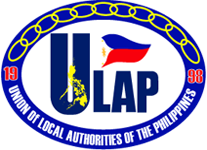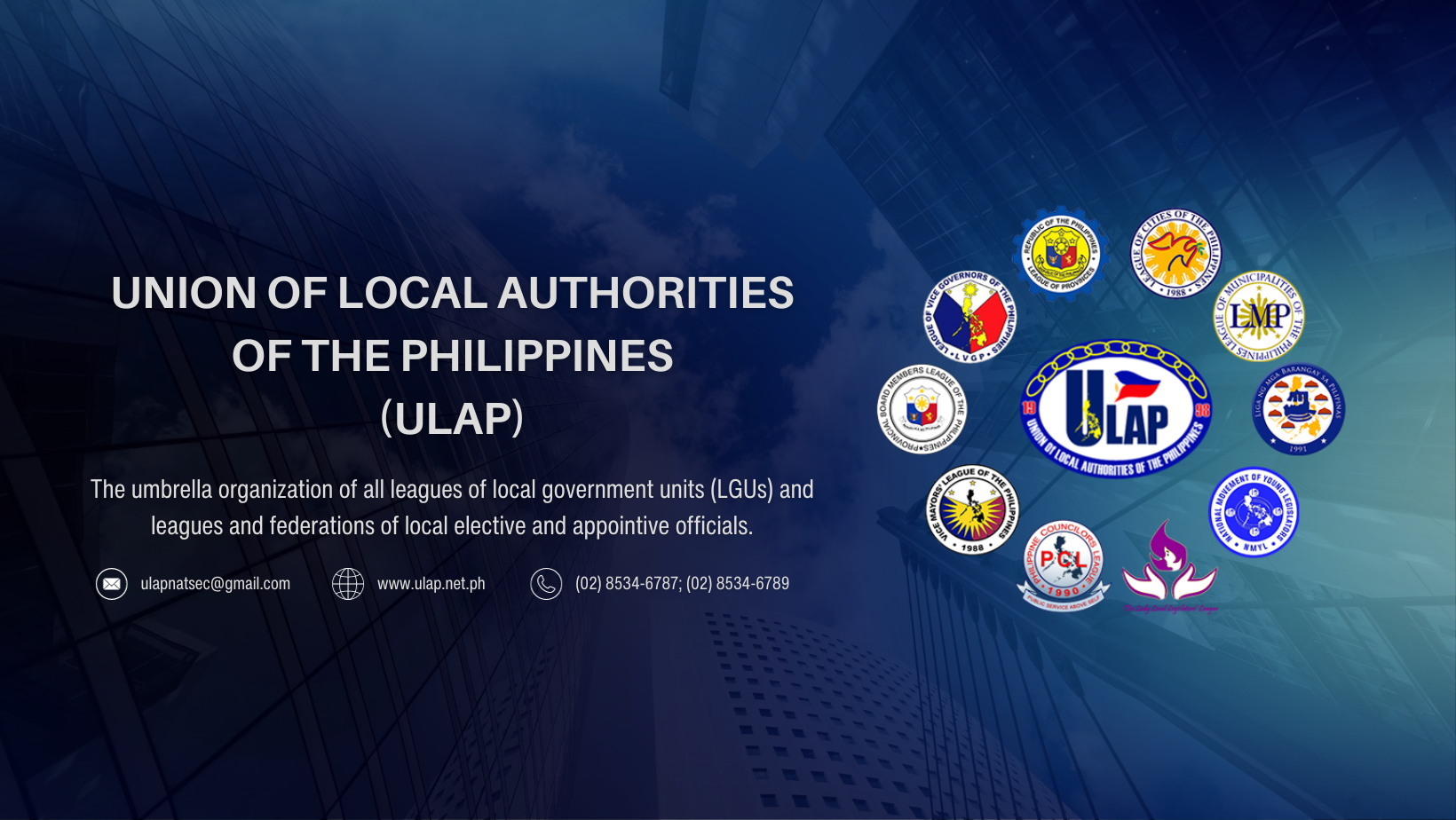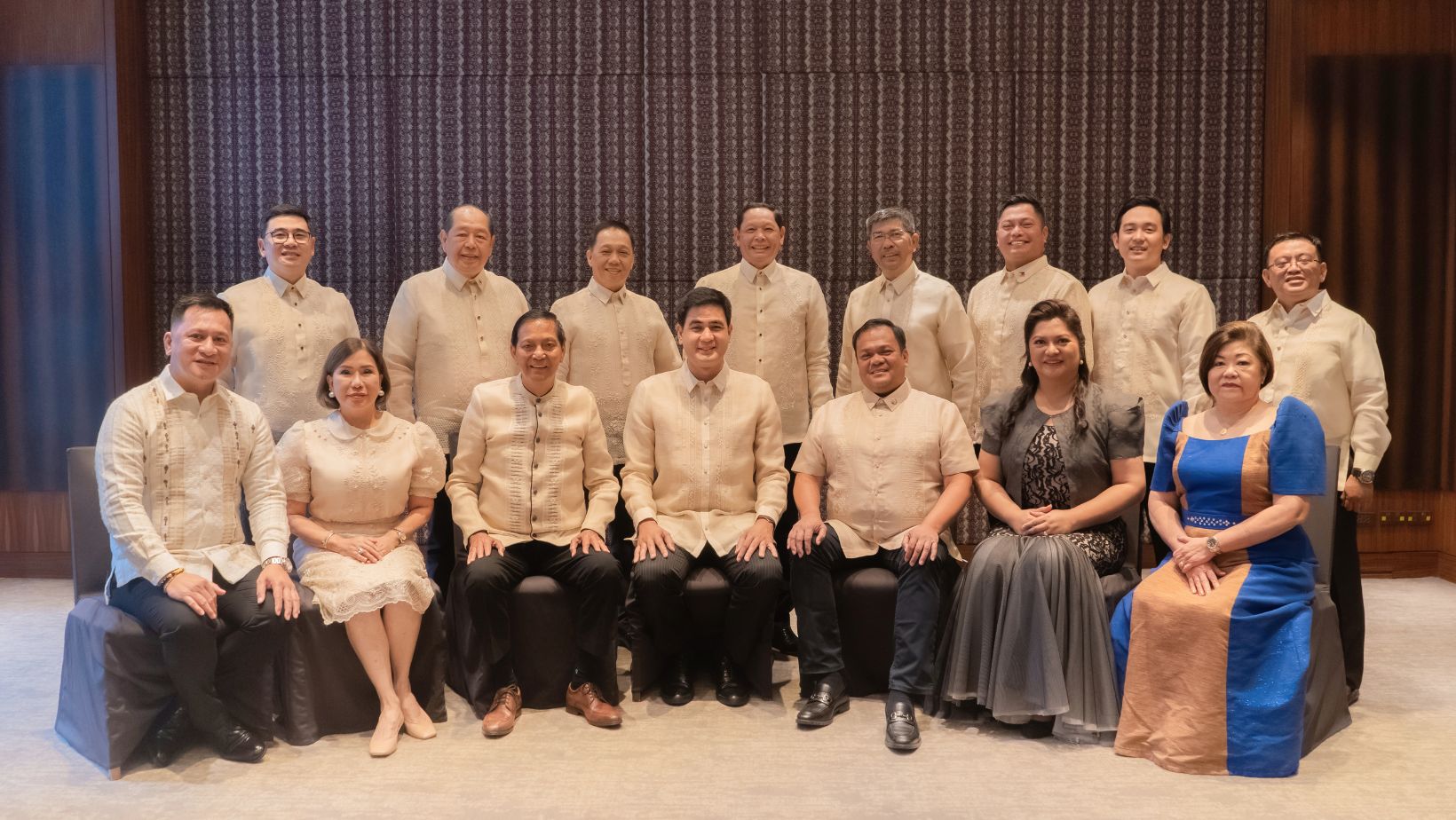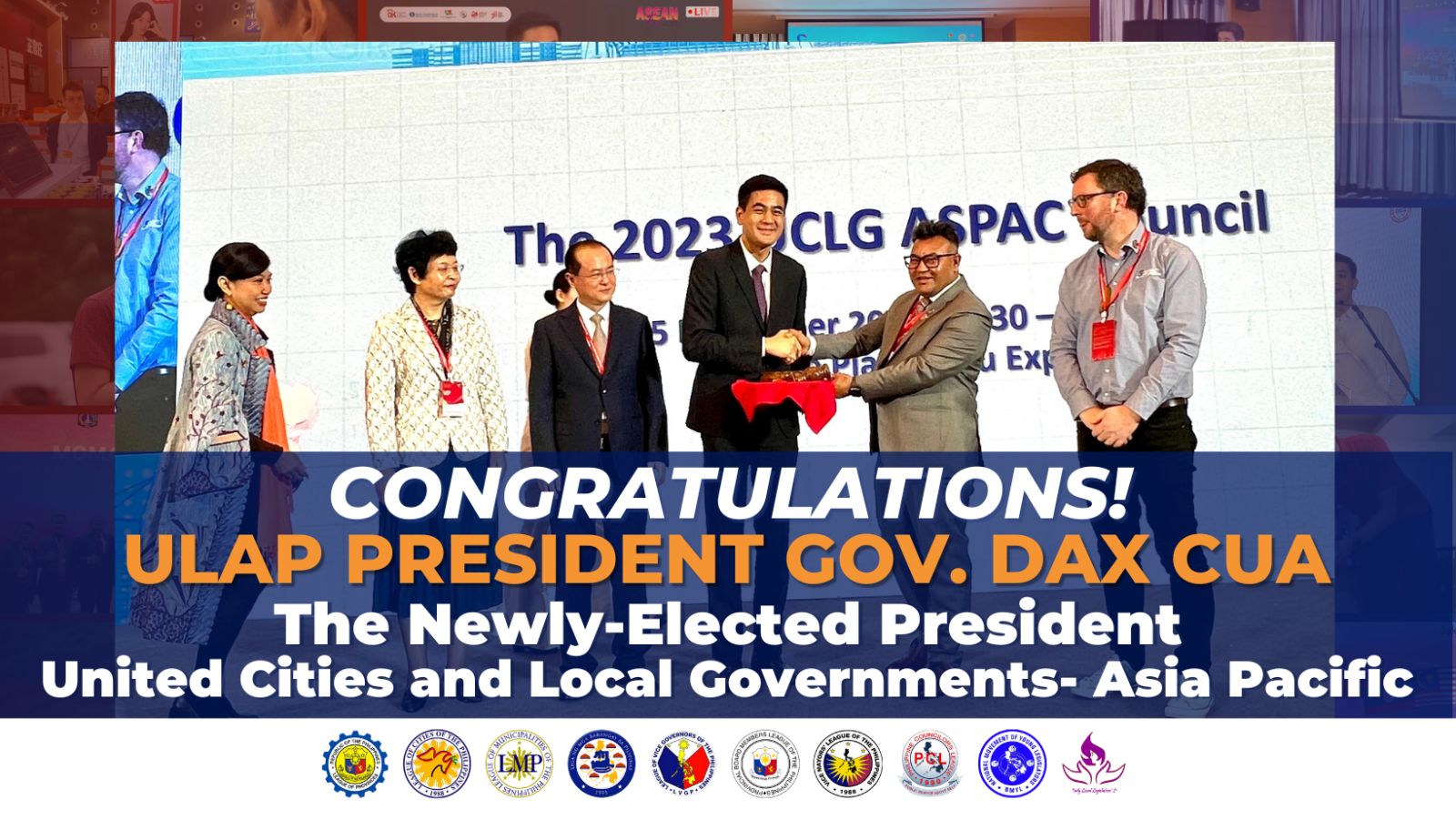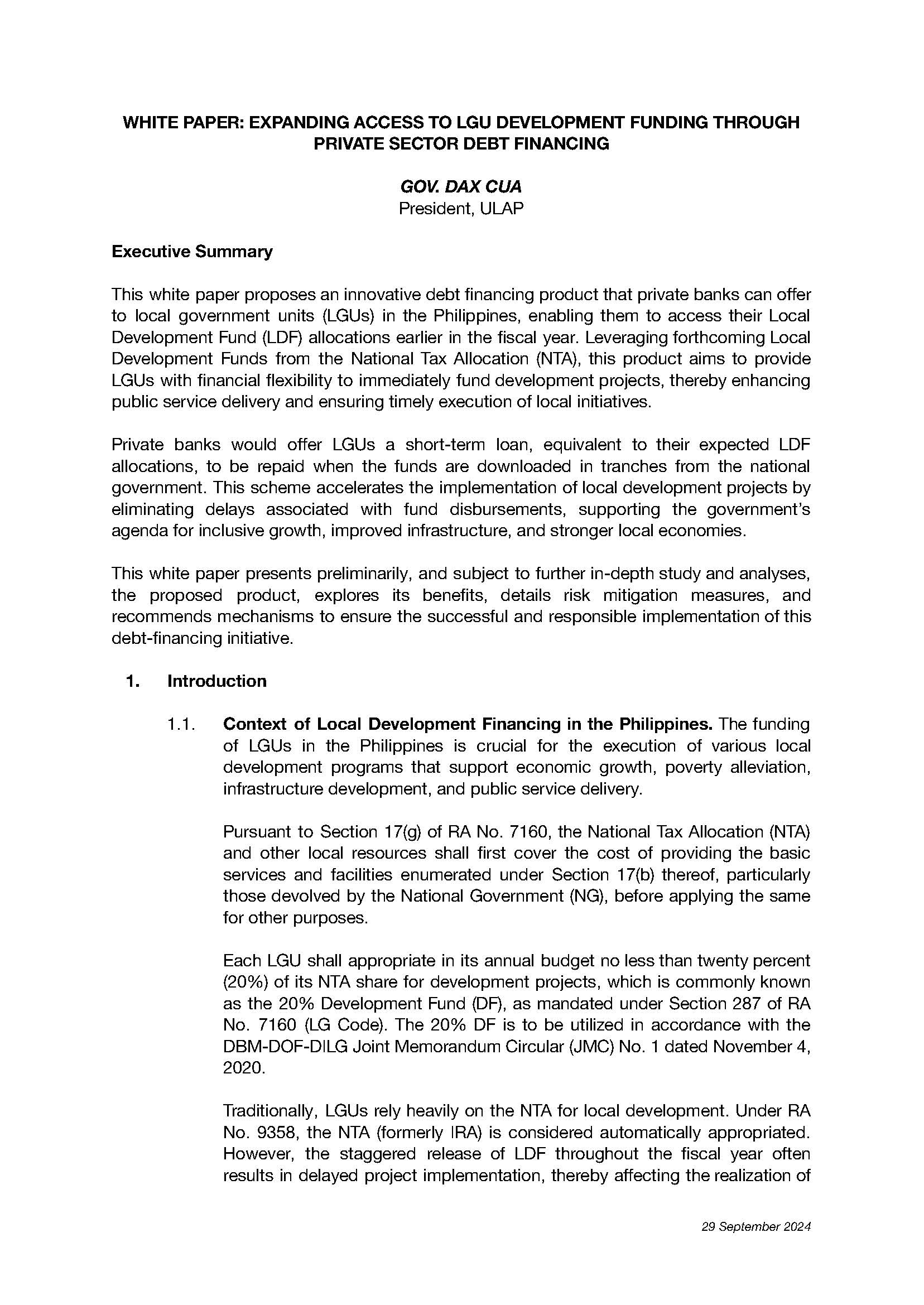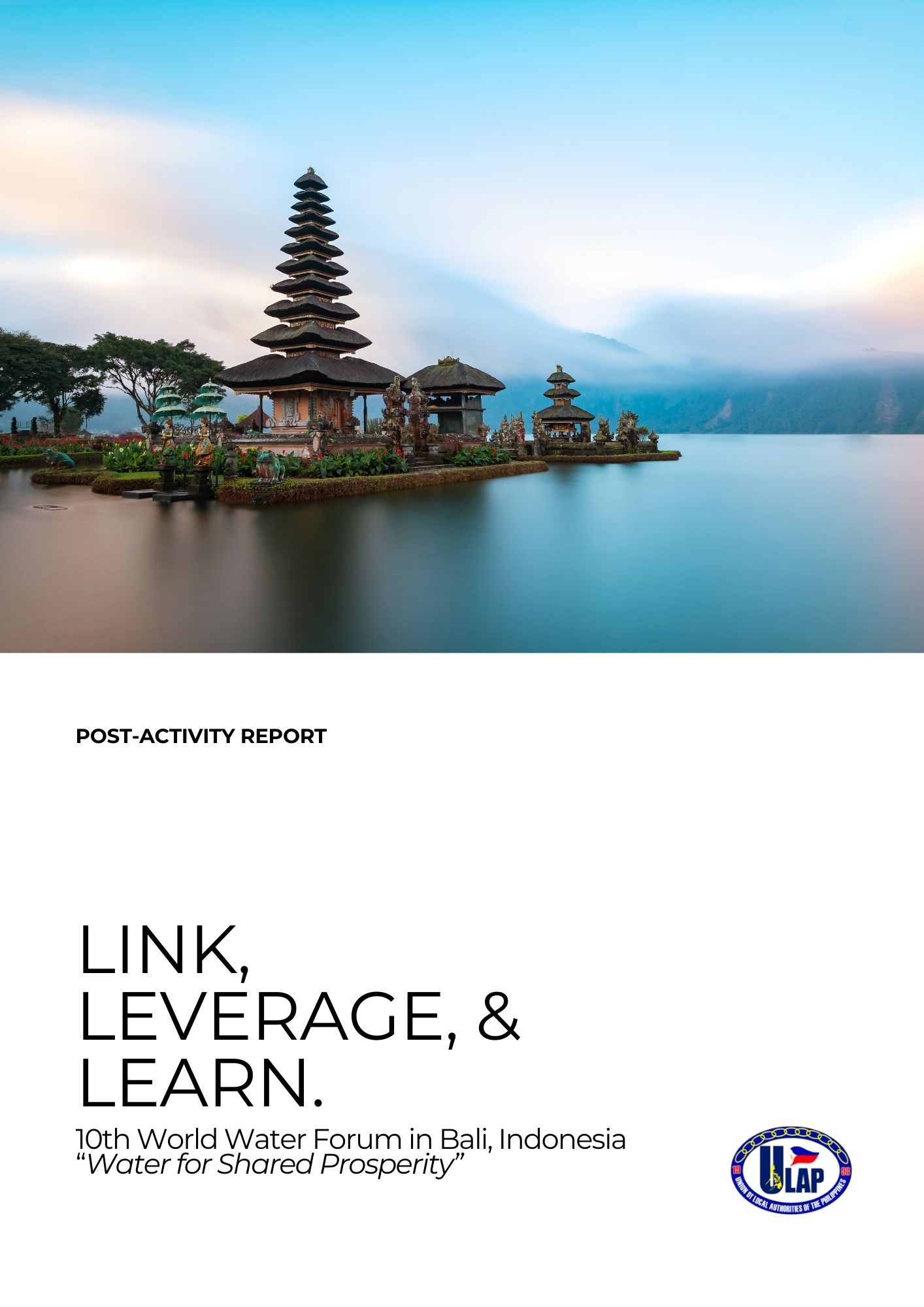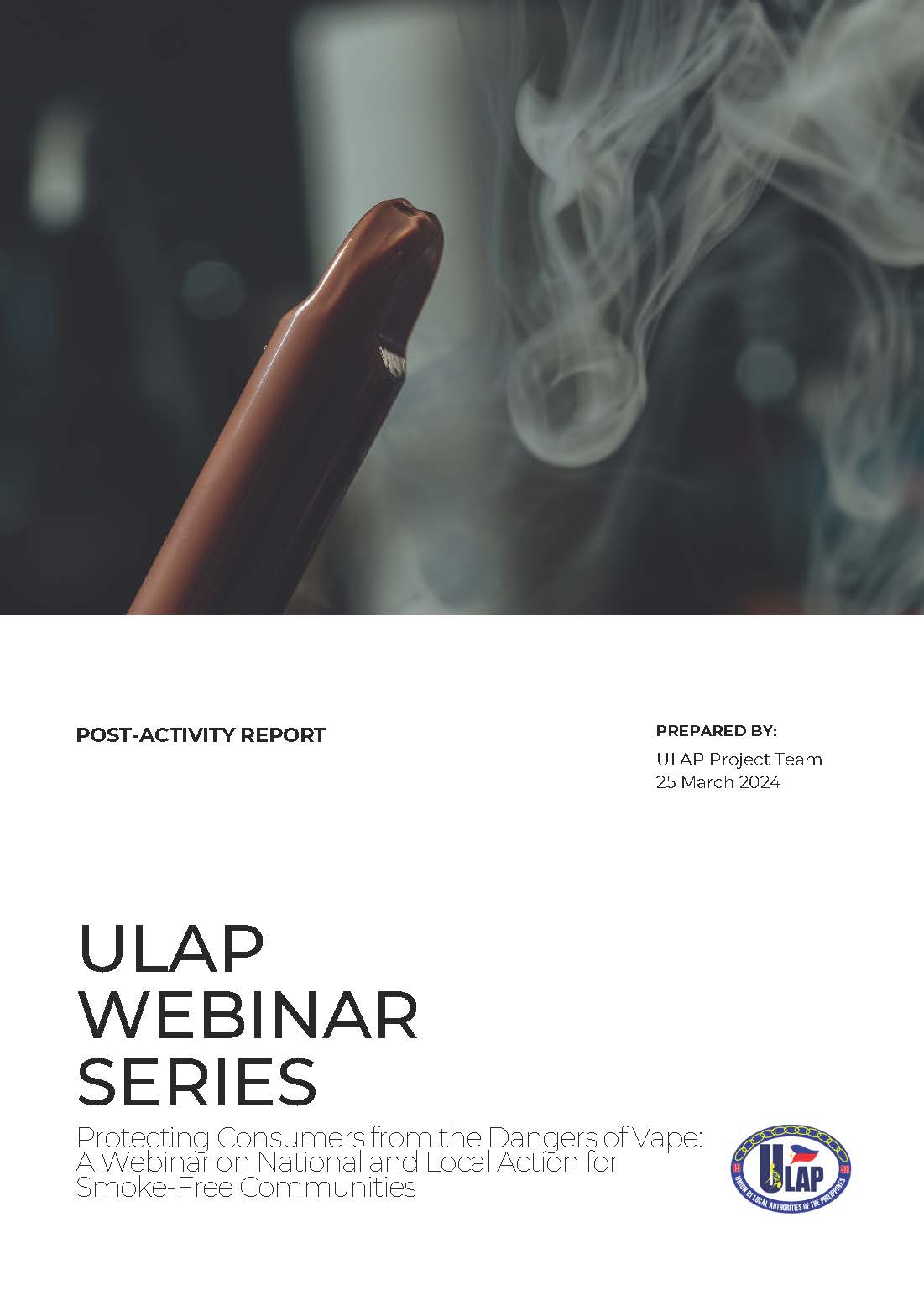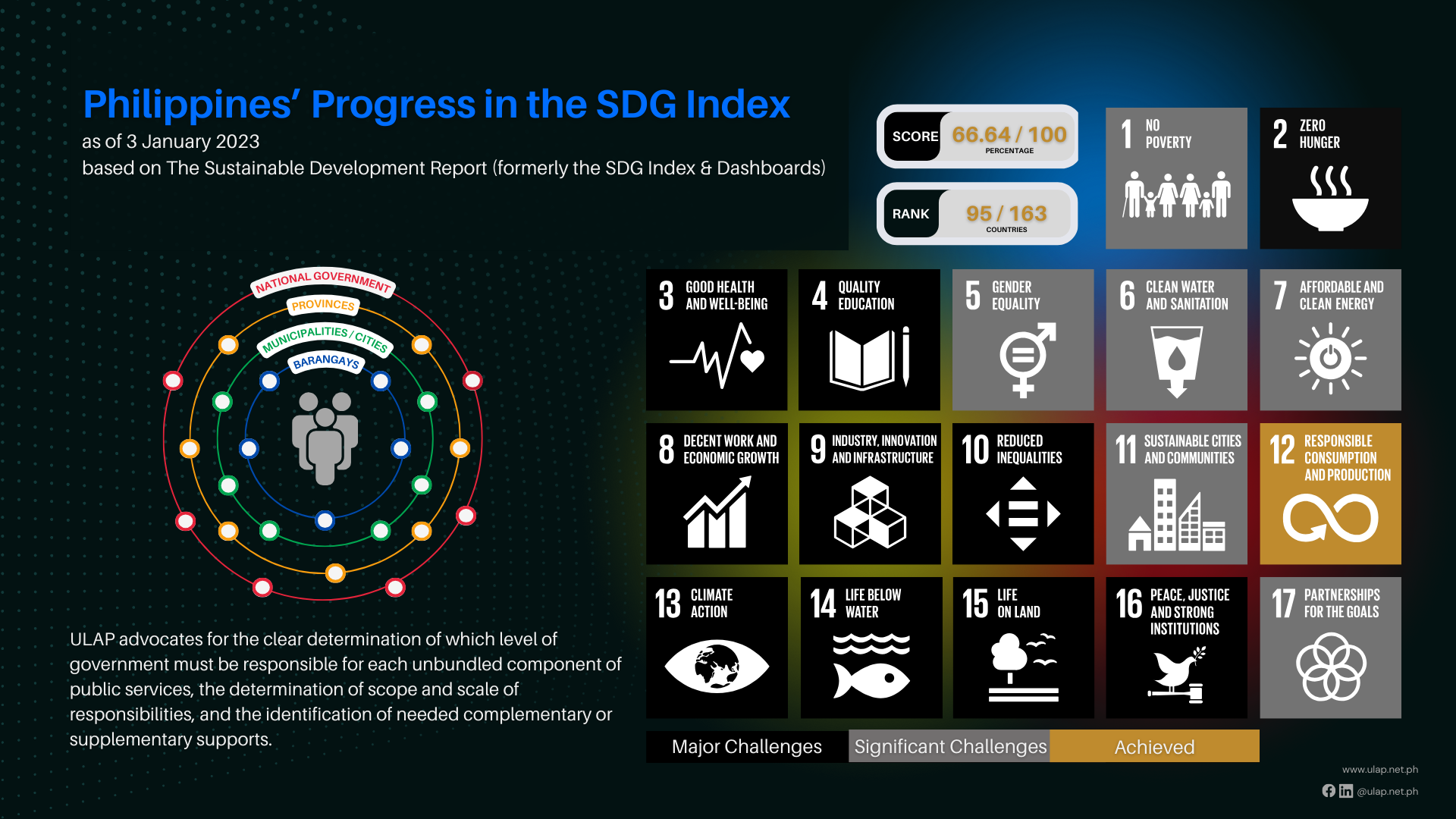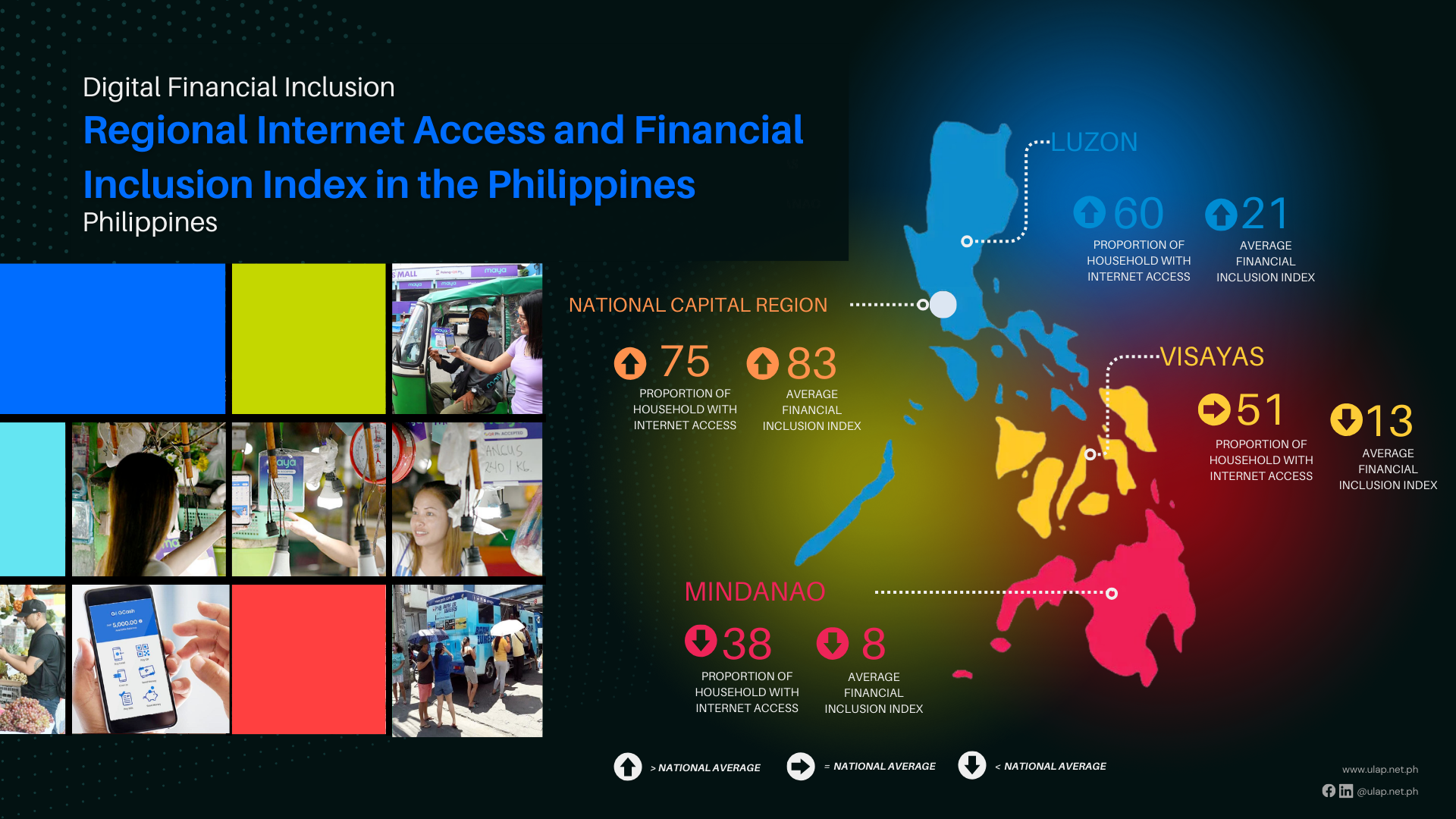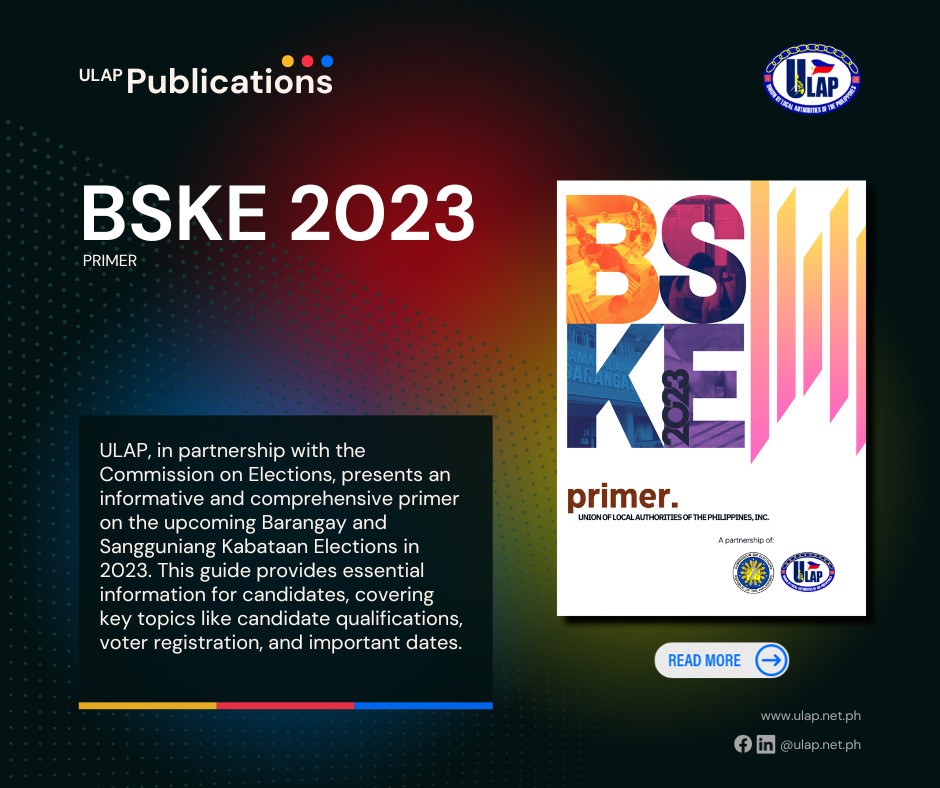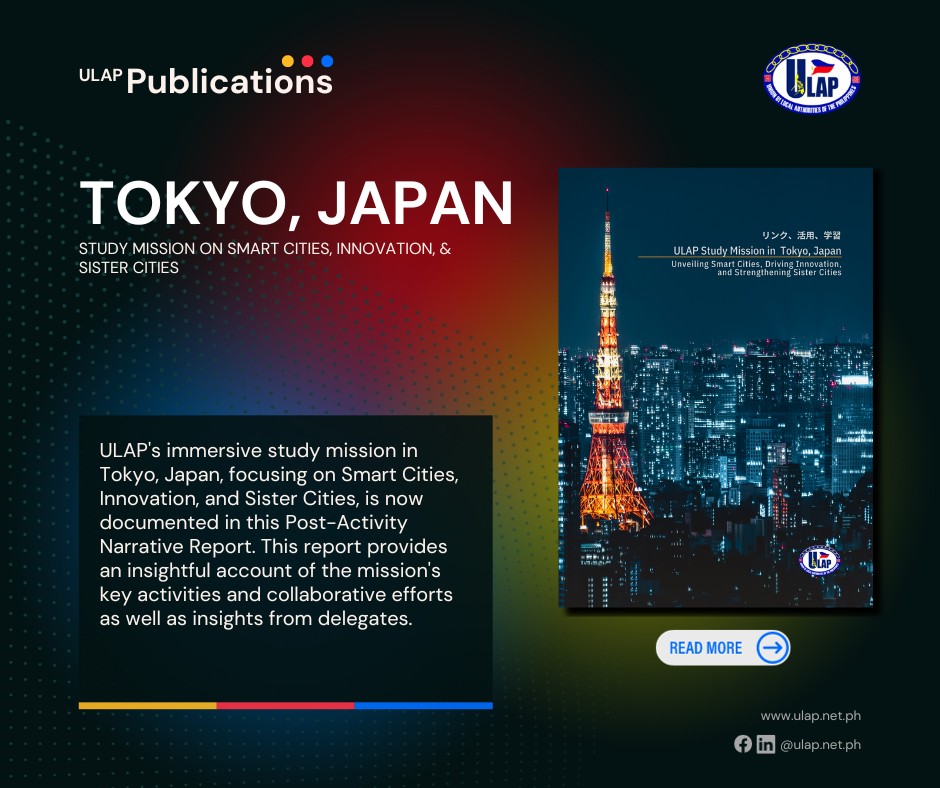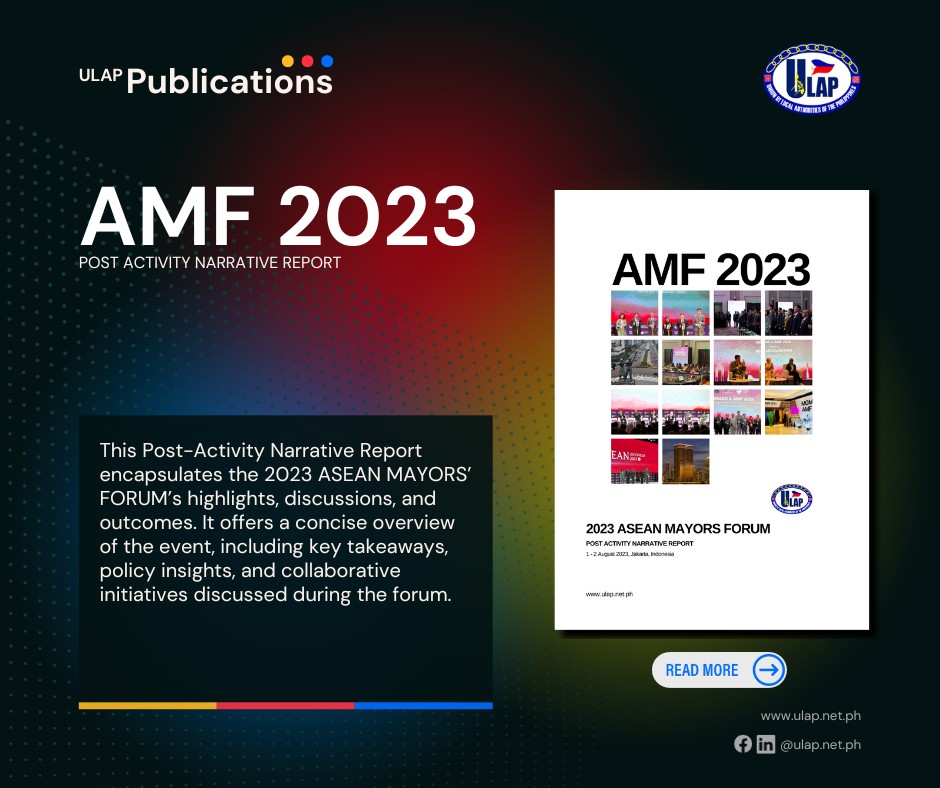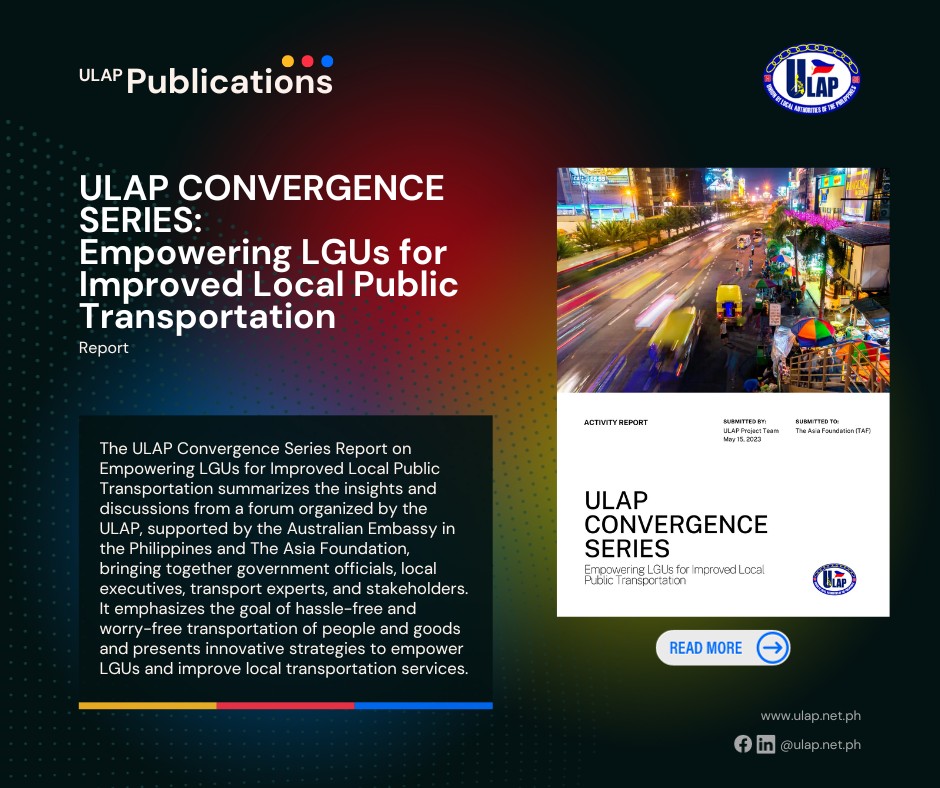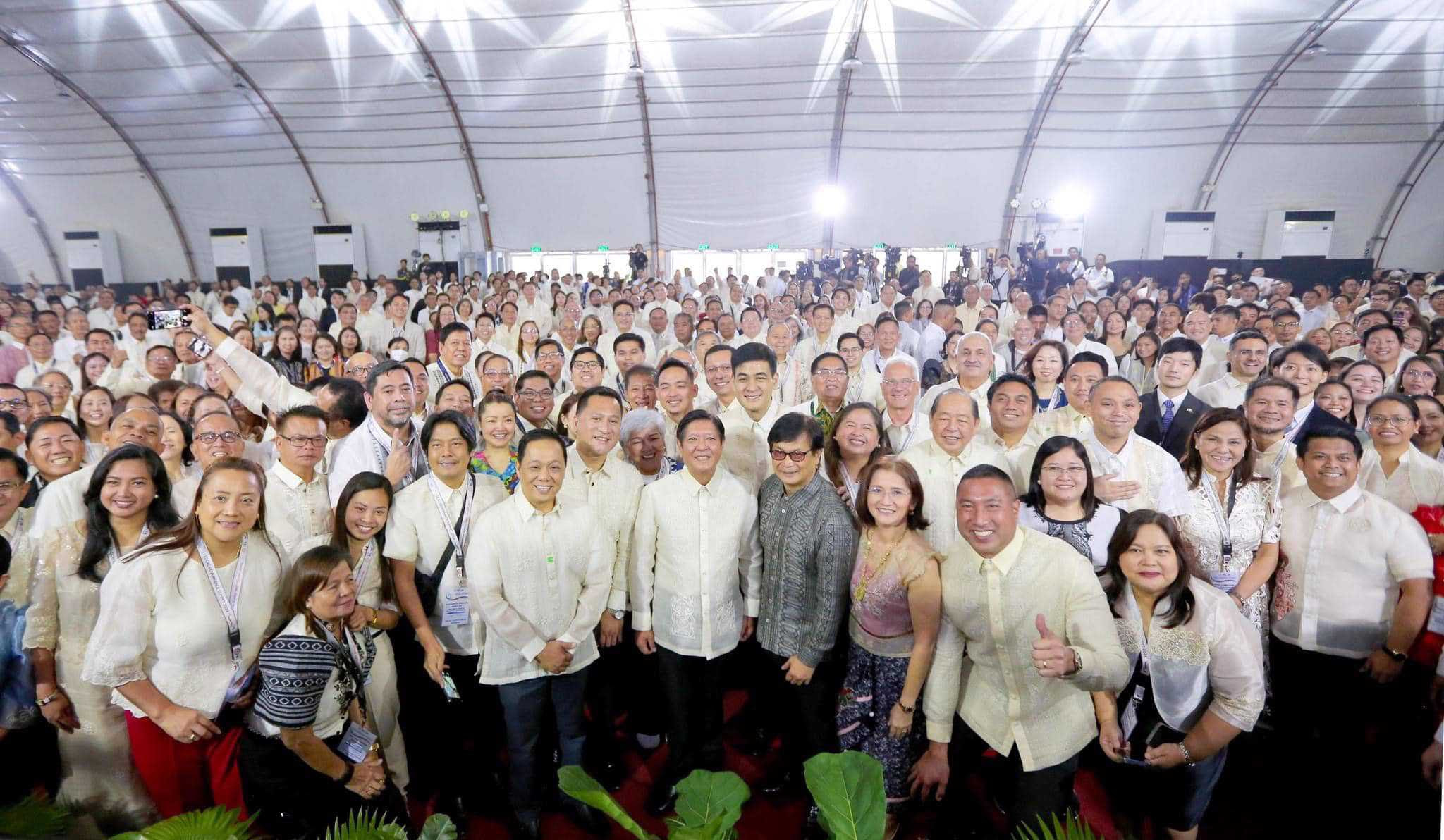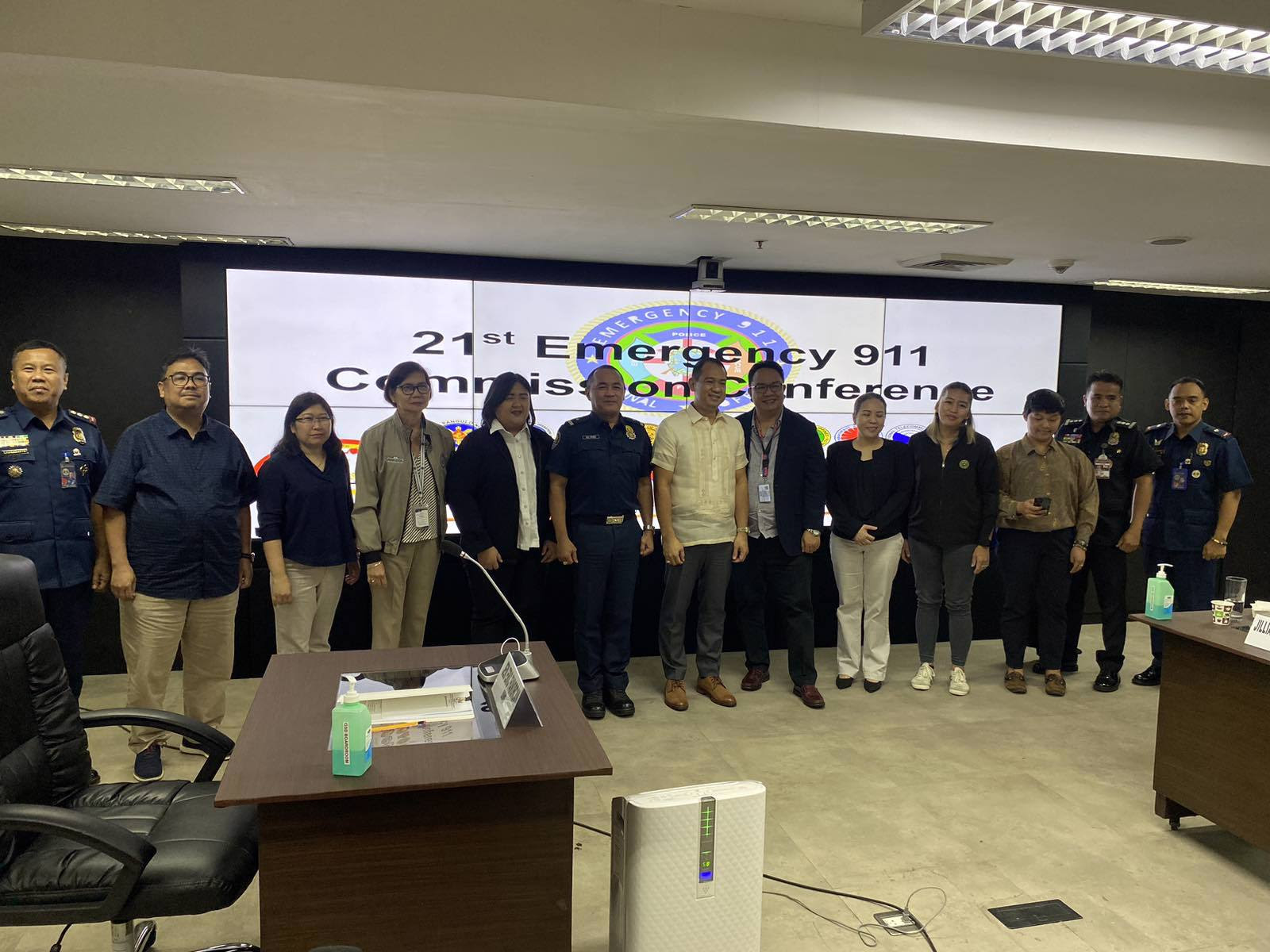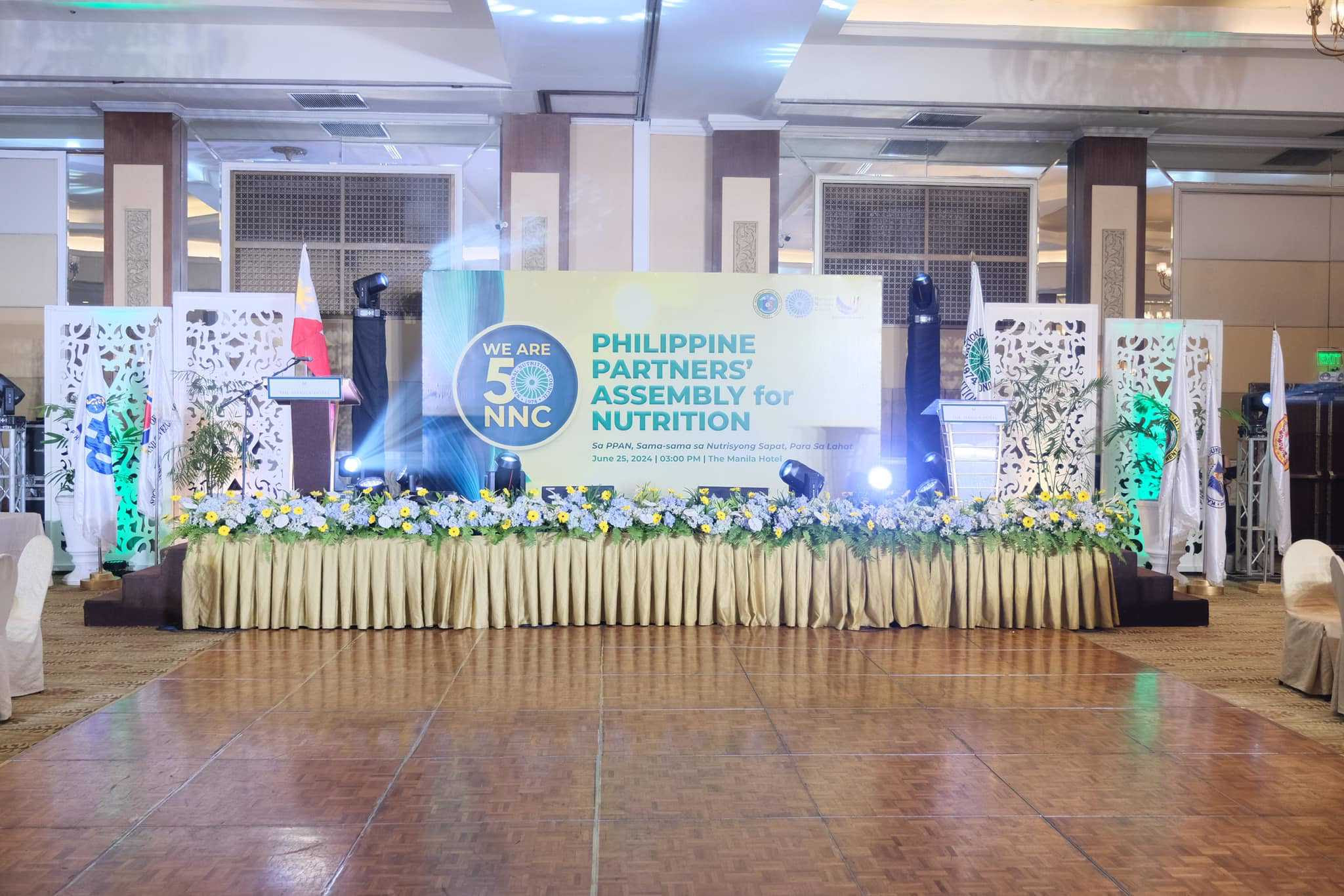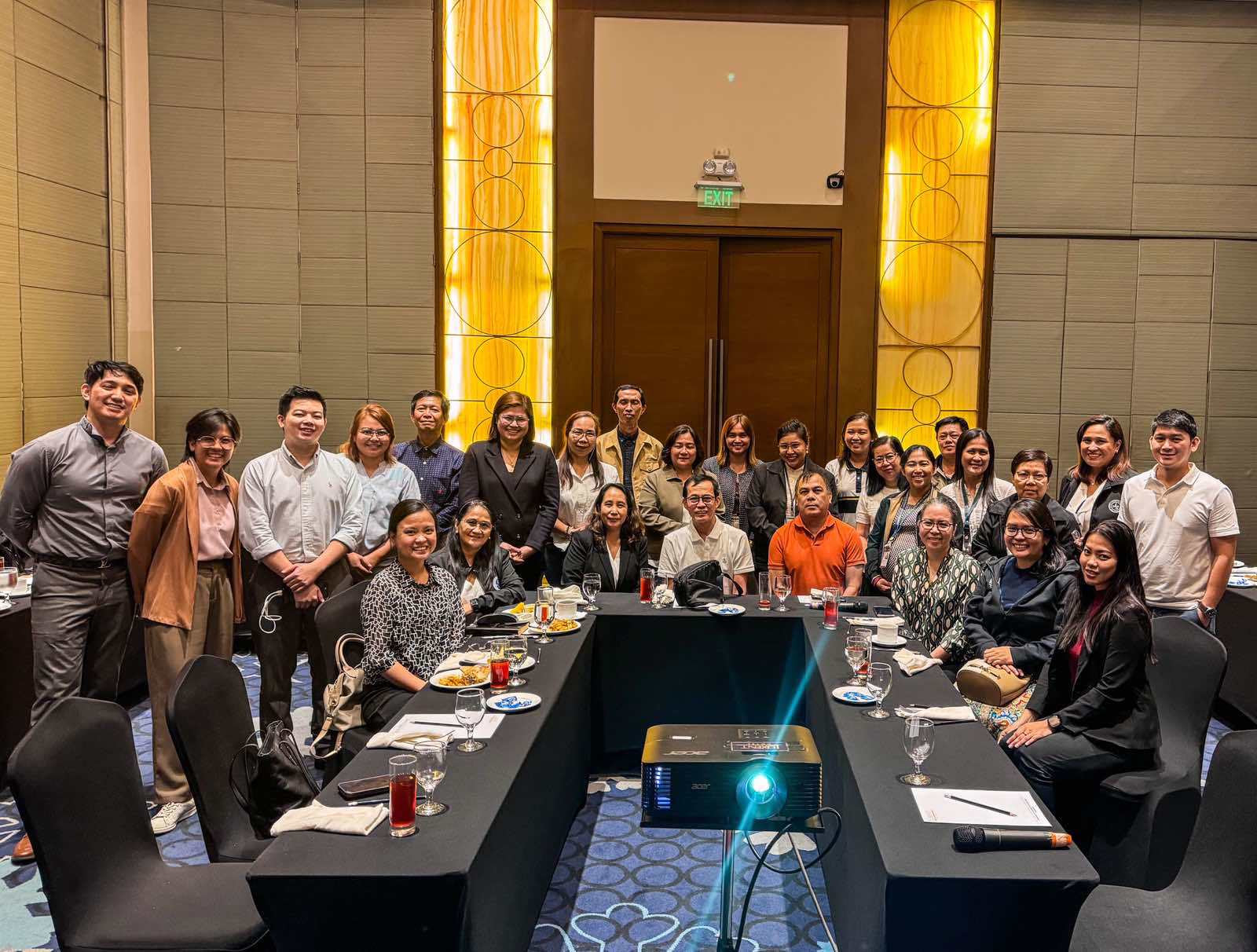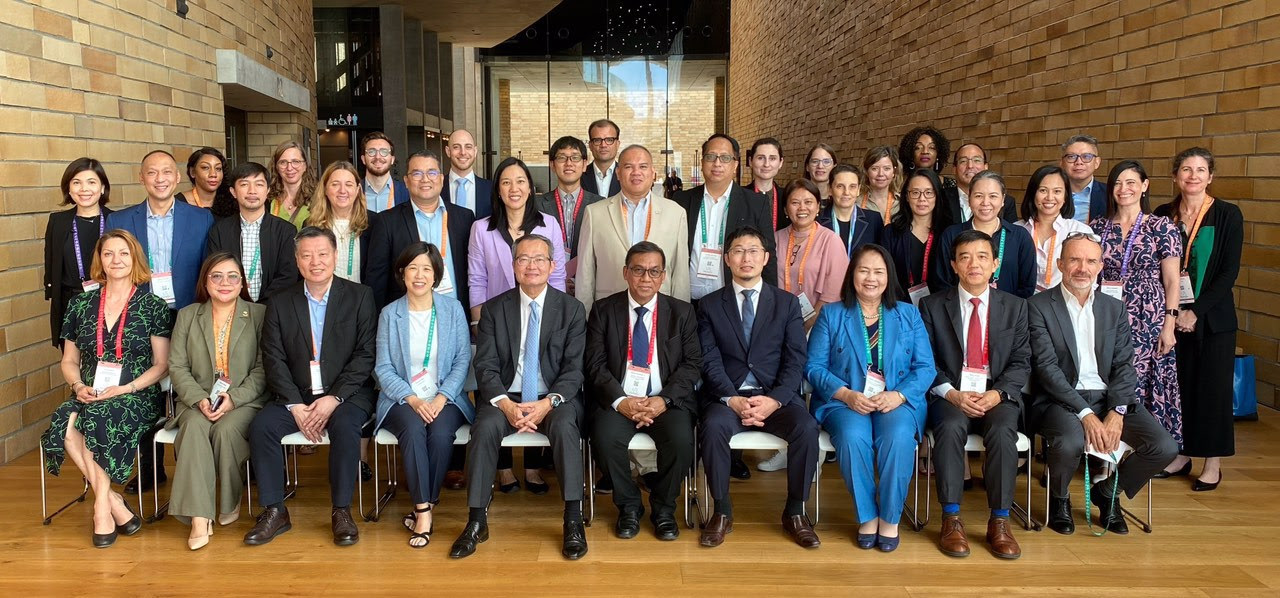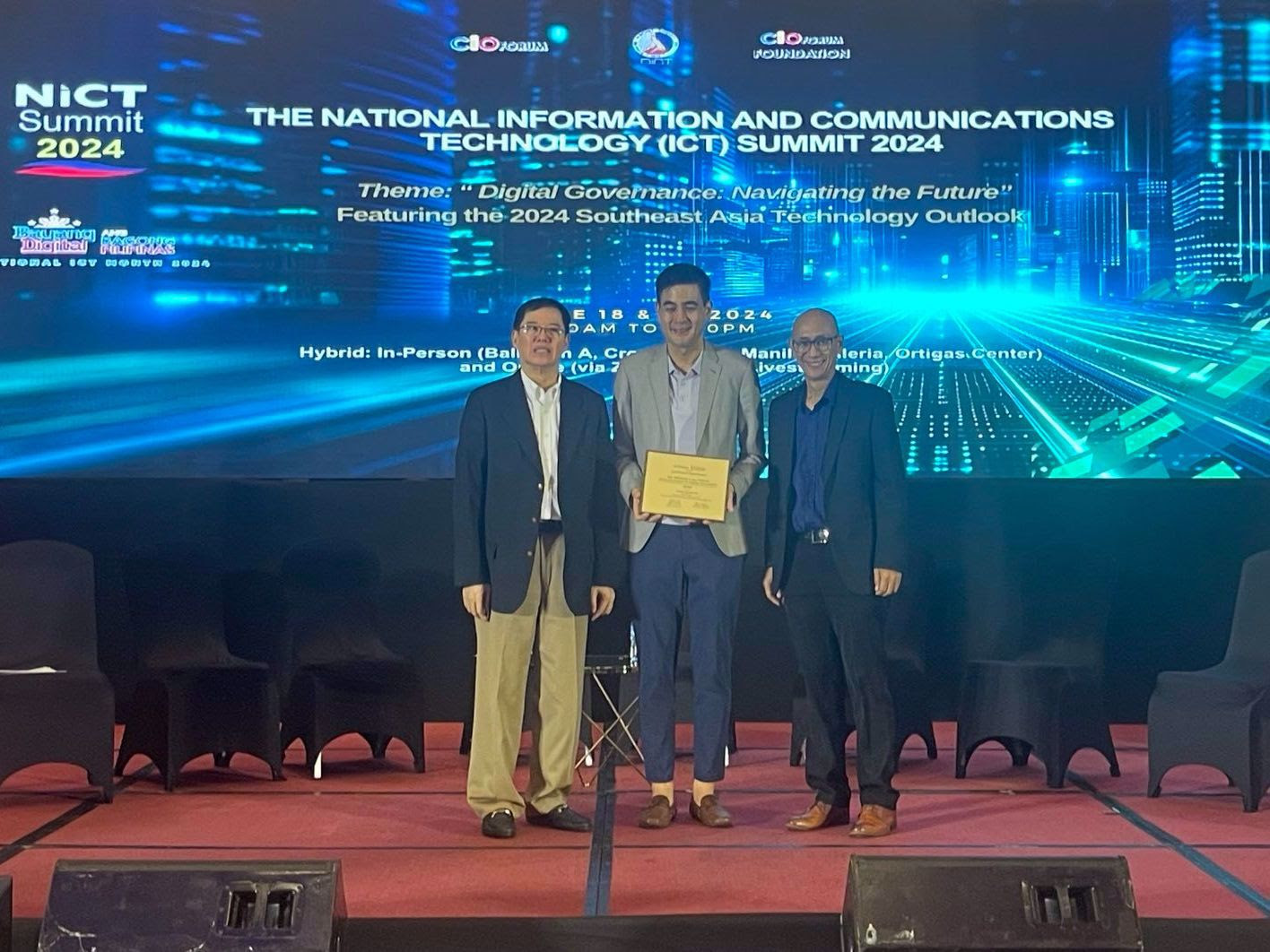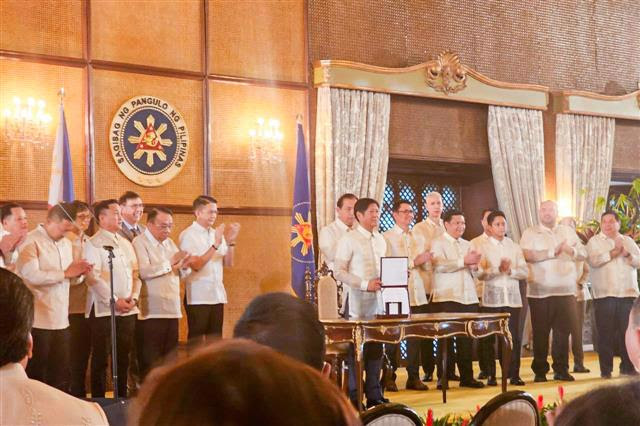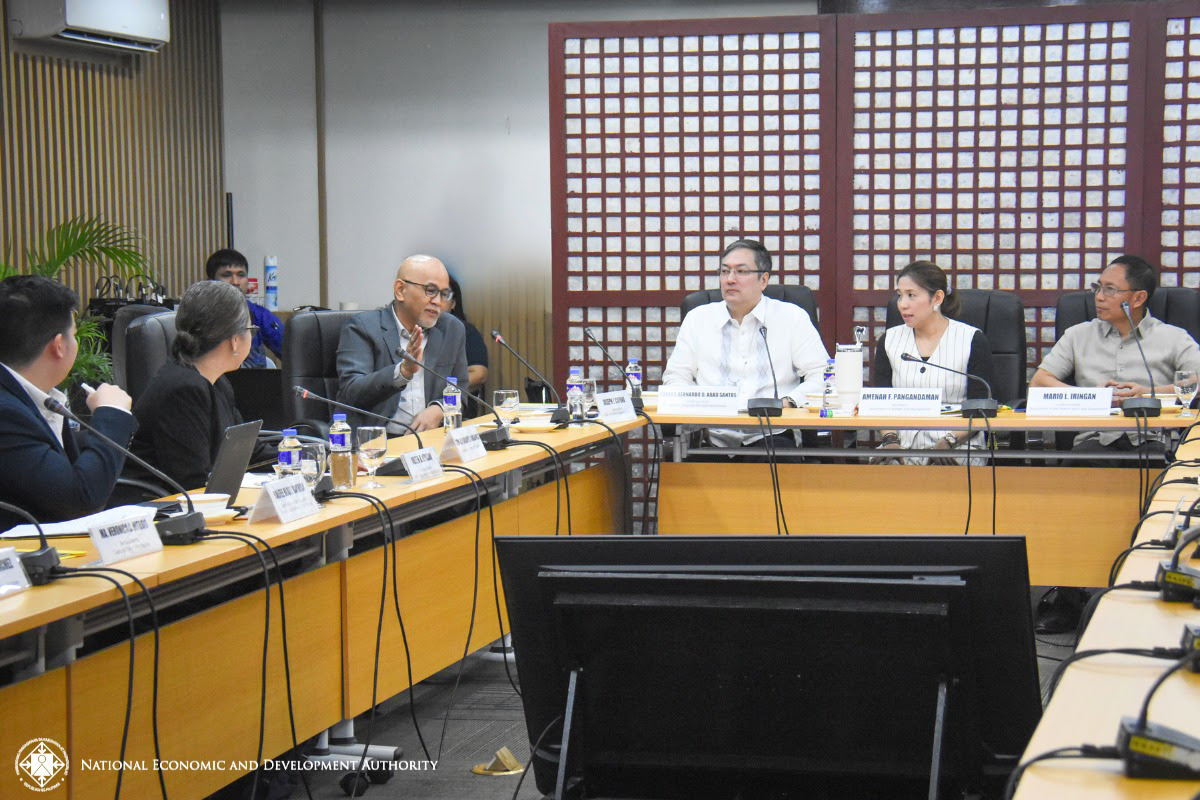 The Union of Local Authorities of the Philippines (ULAP)[1], the umbrella organization of all leagues of local government units (LGUs) and locally elected officials in the country, supported by the Department of the Interior and Local Government (DILG) and the United Nations Philippines RePubliKo campaign, conducted a Round Table Discussion (RTD) entitled “Do local governments have too much money: Unpacking the Puzzle of Local Government Budget Surplus”. This is in response to the long-standing question on budget surplus and its implications to the continuing quest for increased resources of the local governments.
The Union of Local Authorities of the Philippines (ULAP)[1], the umbrella organization of all leagues of local government units (LGUs) and locally elected officials in the country, supported by the Department of the Interior and Local Government (DILG) and the United Nations Philippines RePubliKo campaign, conducted a Round Table Discussion (RTD) entitled “Do local governments have too much money: Unpacking the Puzzle of Local Government Budget Surplus”. This is in response to the long-standing question on budget surplus and its implications to the continuing quest for increased resources of the local governments.
Local governments have long advocated for revisions in the computation of the Internal Revenue Allotment (IRA) to increase its share of the national revenues. “Bigger pie, bigger share” is a common phrase used by local government advocates for this advocacy, wherein the IRA will include other national revenues (such as customs taxes), and allocation between national and local governments are changed from to 60-40 percent respectively, to at least 50-50 percent. This advocacy stems from the fact that most local governments are IRA-dependent. This means for the LGUs, that if local governments were to spend on all service delivery and administrative functions outlined in the Local Government Code of 1991 and complementary laws defining responsibilities of the LGUs, then the funds that they are receiving are not enough to provide.
This has also been the argument forwarded in every funding facility advocated to national government over the recent years, such as the Bottom-Up Budgeting (which is to be Assistance to Disadvantaged Municipalities in 2017), KALSADA (which is to be Kalsada-CMDG in 2017), Health Facilities Enhancement Program (HFEP), and other direct downloads and programs with national government agencies.
However, when expenditure reports are reviewed, the observation recurs that LGUs are unable to spend their local and national-provided budgets. Such has been the case for the Special Education Fund, and for the experience of Bottom-Up Budgeting projects from 2014 to 2016. This raises questions and concerns about LGUs’ absorptive capacity, sufficiency of auditors and aptness of guidelines from the Commission of Audit (COA), and the capacity of LGUs to perform their responsibilities and decentralized functions.
Hence, local governance advocates and national government agencies alike are faced with a puzzle: Do local governments have too much money? Why are there unspent funds? What are bottlenecks in the system and processes? And more importantly, what are reform areas that can be pursued to solve the contradiction between IRA-dependency and local budget surpluses?
Delving into these questions, the RTD sought to gather insights from key stakeholders to raise issues and responses on what seems to be “underspending” of local governments. It also facilitated discussions on the Special Education Fund and Bottom-Up Budgeting (BuB) to cater the concerns on local project implementation and budget execution. Ultimately, the discussion was guided by the following questions:
Figure 1. Roundtable Discussion Guide Questions

This is part of a series of roundtable discussions under the DILG-UN RePubliKo-ULAP collaboration, covering various topics in line with the scope and priorities of the agreement among the three institutions. The RTD on local government budget surpus was held on December 8, 2016 at Microtel by Wyndham, UP Technohub, Quezon City and was attended by a total of forty (40) participants from national government agencies, local government units, development partners, and member leagues. A complete list of participants is documented in Annex A: List of RTD Participants.
[1] For more information about the project, contact the ULAP Secretariat (ATTN Executive Director Czarina Medina-Guce) at This email address is being protected from spambots. You need JavaScript enabled to view it., or (+632) 5346787 or 89.

